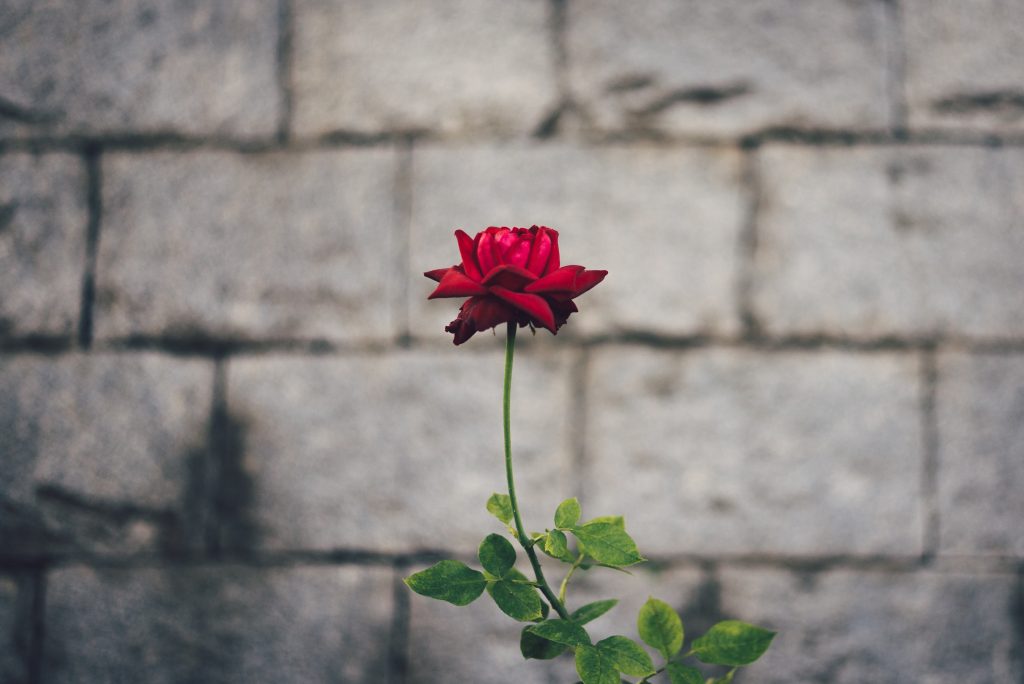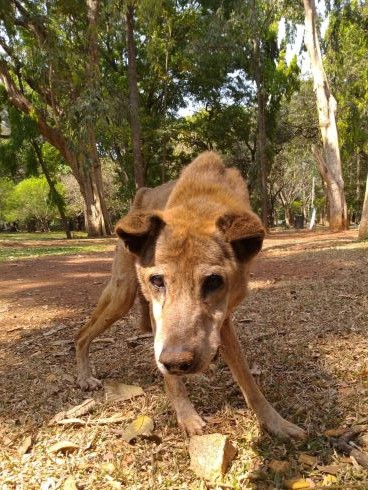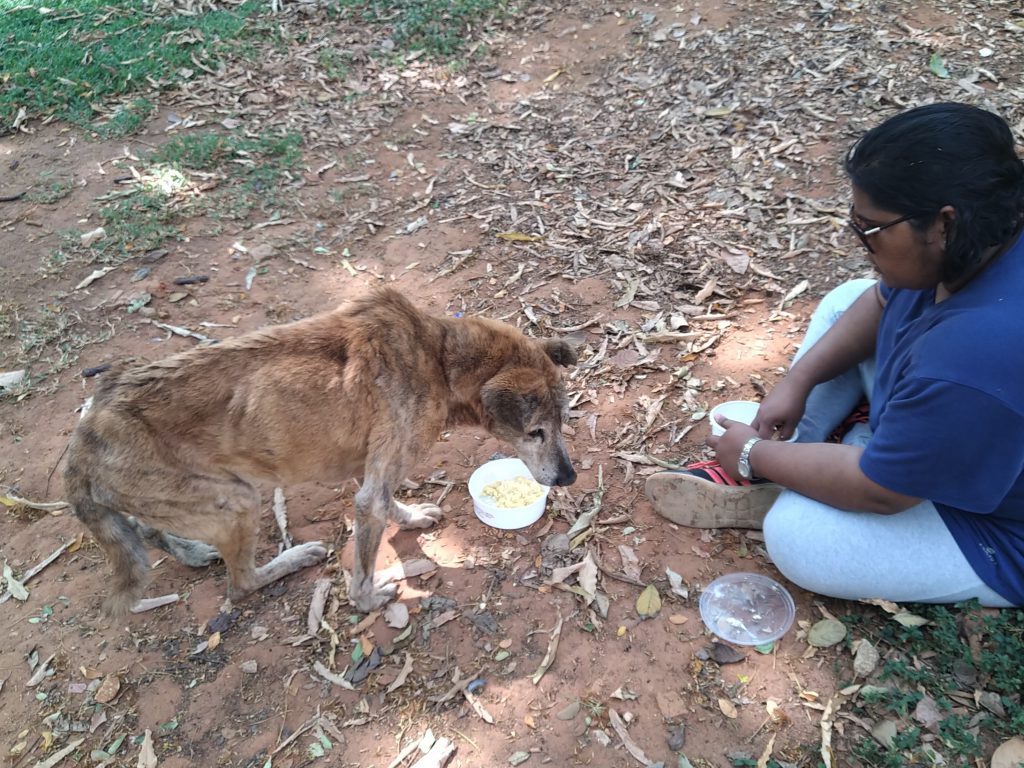On a regular day, I wake up, make coffee, have breakfast, pack lunch, get ready and leave for work. In a tumble I could fit all these activities into 45 mins. That was in my life pre-March.
Since the world as we know it ended, I go to sleep around 1:30 am. I wake up around 8.30 am. Mostly because the trash gets picked up at 8:30 am and I need to put it out. Meanwhile, Thej wakes up and parses data!
I wash the dishes. Then make coffee. Warm up our dog Echo’s food and refill his water bowl. Along with this I fill all our water bottles. I make rice in the rice cooker for lunch or other eventualities. There’s usually some leftover sambar or rasam in the fridge. So lunch is sorted.
By then, Thej and Echo are back from their walk. Like foragers, they bring back from their walk, single packets of milk or curd or whatever is available in the shop. I put out Echo’s food. While he eats, I drink coffee, read the newspaper. Thej and I talk about the world going to shit. Talk about where to get meat for Echo’s meals. Often, we check on our househelp Selvi. Meanwhile, we have cornflakes or overnight oats for breakfast. I clean the balcony where the raintree’s flowers and leaves congregate. Sometimes I do a quick cleanup of the living room from where I work.
On most days, Thej and I have calls from 11 am. Truth be told, I open my computer earliest at 10:50 am. I sit in front of the computer/phone, crusty eyed and camera shy, mostly on mute. For me, social distancing is actually the best part about Covid-19. I don’t have to meet people and for the most part, I don’t have to make polite conversations. This bit is truly divine.
I answer emails if any, I get on calls (of which there are unreasonably more these days) and I plan for the next FY. But beyond this, I have to work on some content and an internal grant but my covid priorities are always running on loop in my head. For instance, at 3 pm I have to remind Thej to head to the grocery store to join the queue. It’s only been a week since we got Echo home, so we take breaks to play with him, pet him, groom him. I manage to keep calm thanks to this cuddly bum and the belly rubs he demands.
In the evenings, I talk to Amma about the sensex, Pinarayi’s efficiency and what’s for dinner. Thej and I drink coffee and try to talk about our work day. It usually spirals into Covid talk or we end up watching the news. There’s a palpable tension in the air as we try to act normal to recreate some peace. We tiptoe around discussing the heartbreaking scene at Anand Vihar bus stand. Clothes need to be folded and put away.
Thej washes the dishes in the evening, makes coffee, grates coconut. Alongside, I whip up some dinner that’s labour intensive. Like chapati. Just to stay occupied. I’ve already cleaned out our storage and the cupboards in the kitchen.
In the evenings, Thej vacuums the carpet and sometimes our bedroom. Echo sheds even more in order to keep Thej occupied. We have dinner ignoring our begging, drooling bum-wagger under the table and I Netflix late into the night.
Why am I talking about my daily routine? Because, workplaces (mine included) seem to think that we are just working from home. No, we are not. We are in the middle of a global pandemic. And now is not the time to harp on about productivity. I would ideally have the leadership everywhere address the vulnerability we feel. Talk about the importance of business continuity: the merits to keep on keeping on. Do what you are doing but at your own pace. It’s not enough to see this messaging on Instagram. There’s authenticity in hearing this message from our leadership; a sense that they care. Acknowledge and address that elephant in the room: employee morale. But I understand it’s too much to expect.
I imagine a typical woman of my age; 35. In most likelihood, she has two children, a husband whose work is “more important” than hers and she lives with her in-laws. Financially, she has a home loan, a car loan and children’s education to worry about. On a regular day, work hours are her time slot to focus on work and herself.
But in Covid times, she has two children who are thrilled that their mother is home all day. She has to deal with her “in-laws dynamic” during the day as well. She has to do the dishes, wash clothes, water plants, clean the house and cook food because the house help isn’t around. She has to keep her children entertained and her in-laws safe. I am sure there are husbands out there who are equal partners but you know that you are not the majority. She or her husband has to go out to get groceries because the other members of the household are highly at risk. If the household has a pet, then getting meat supplies for his/her food also weighs down on her.
No, we are not just working from home. This is a stressful time full of uncertainty. With next to zero direction from the state and central administration on the plan of action, people are having to cope in their own ways. My organisation might be working on changing the world but right now, I need to Netflix trash late into the night just to stay afloat.
Filed under: my-privileged-world-view.


